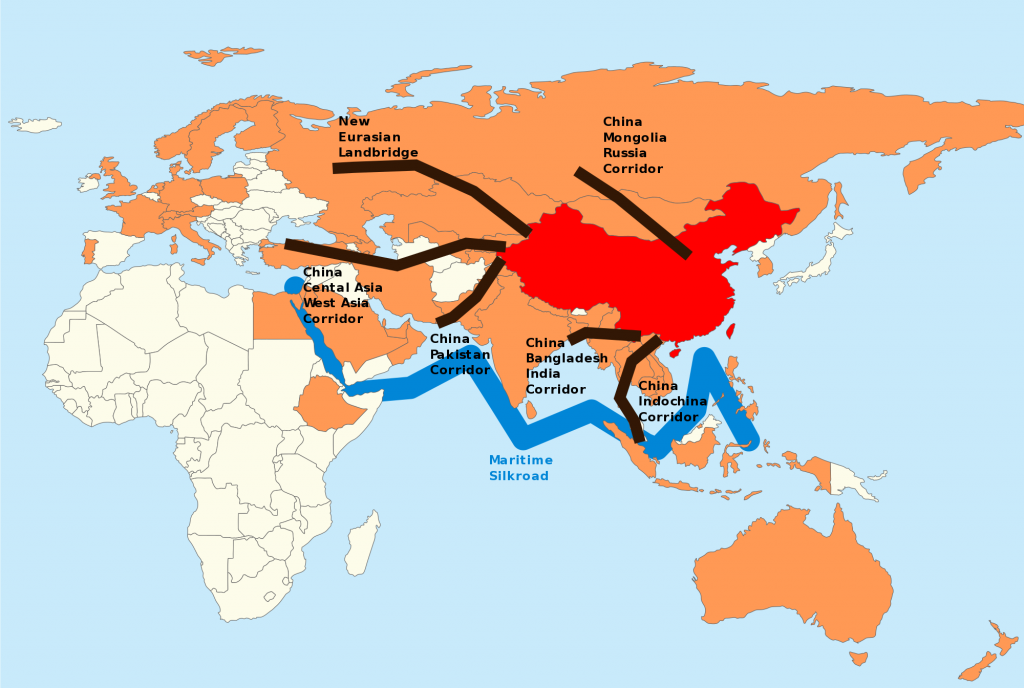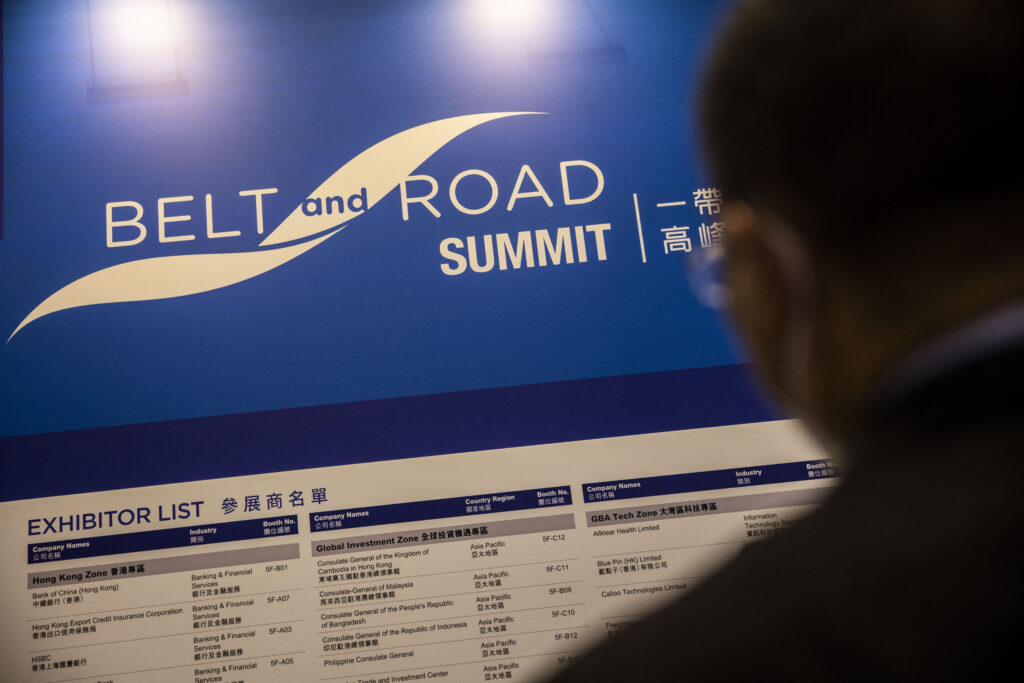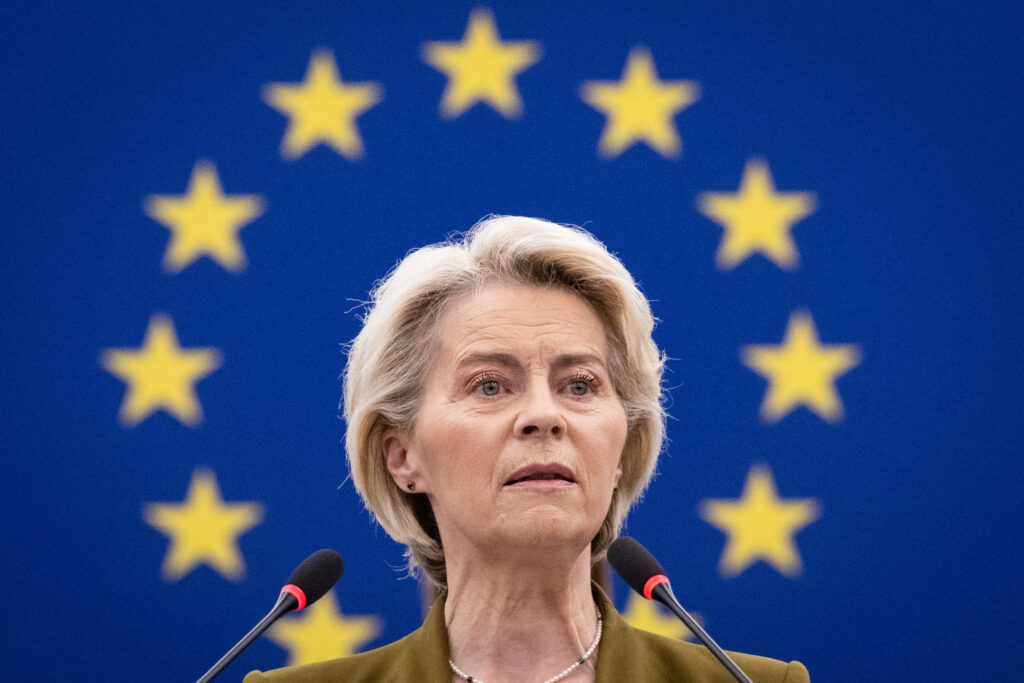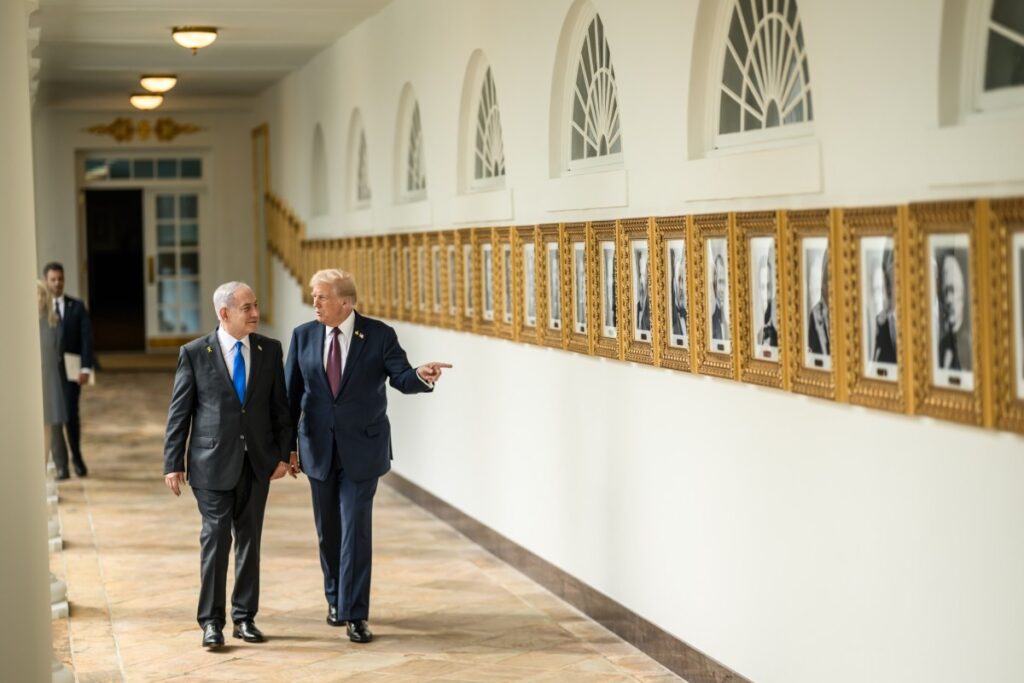A Note from the Editorial Team
The Middle East Institute regularly welcomes the contributions of scholars from various disciplines to broaden intellectual exchanges on the complicated issues of this region. With this issue, our guest contributor, Professor Yitzhak Shichor from the University of Haifa, discusses the possible direction of China’s Middle East policy as articulated in Xi Jinping’s report to the 19th Chinese Communist Party Congress.
By Professor Yitzhak Shichor
Although Xi Jinping’s report to the 19th Chinese Communist Party Congress concentrated mostly on domestic issues, he also dealt with foreign policy and notably with the link between China’s internal course and its impact on the world. And, while revealing a new stage in the Chinese Communist revolution, there was little, if anything, really new about China’s international relations. Xi’s report reiterated China’s principles while underlining just once that China will continue to play its part as a major and responsible country. Nonetheless, all commentators, practically without exception, declared that China was about to adopt a more assertive foreign policy and play a more proactive political, even military role in world affairs and, according to some, even wished to assume global leadership. There is hardly anything in Xi’s report that accounts for such an intention, or substantiates such a conclusion, though these conclusions may in fact be related more to Xi’s perceived personality and toughness, as well as to what he called the Western Cold War mentality.
Xi in fact bent over backwards to deliver the message that China will continue its efforts to support peace and stability; preserve the existing international order; promote justice and cooperation; uphold mutual benefits; and recognize cultural diversity. He reiterated the Five Principles of Peaceful Coexistence, the universality of development and the fact that countries have become not just interconnected but also interdependent. At the same time however, the world is facing growing instability, uncertainties and destabilizing processes. It is here that we find references that apply to the Middle East, a term which is never mentioned in Xi’s report. He refers to gaps between rich and poor; hotspot issues which arise often in some regions; and unconventional security threats like terrorism. The term ‘hotspot’ is used by Chinese officials and scholarly studies almost exclusively for the Middle East, or some regions in this context. Moreover, the Chinese regard Islam and the Middle East as the principal hotbed and the source of international terrorism. Many Chinese academic publications, even most, link between terrorism and Islam and, given the prevailing threats in Central Asia as well as China, there is no reason that this belief, true or otherwise, is going to change.
Needless to say, China’s foreign policy is not a unilateral process. By necessity it reflects, and responds to, multilateral inputs that shape the way it behaves in different regions. A most complicated one is the Middle East where Beijing has to perform a juggling act – or acrobatics – in order to satisfy as far as possible conflicting demands and contradictory policies. Given the regional diversity, rivalries and hostilities – which have nothing to do with China – any significant, or even insignificant, change in China’s Middle East policy can hardly be expected. Whatever the decisions of the CCP 19th Congress and Xi’s words in his report, China’s policy in this region will continue to be determined by the situation there rather than by Beijing’s preferences. Under these circumstances, although many, or most, commentators insist that Beijing will become more proactive politically in the Middle East, there is no reason for the Chinese to do so. In fact, they continue to oppose external intervention in the region, not only by Western countries and especially by the US – but even by their “partners”.
One of the outcomes of the 19th CCP Congress may be a growing alienation between the Chinese and the Russians concerning their respective Middle East policies. Ever since the Russian annexation of the Crimea in early 2014, and the hostilities against Ukraine, there have been implicit indications of Beijing’s discomfort with Russia’s use of force. China’s uneasiness must have increased following Russia’s military involvement, from September 2015, in the Syrian civil war. Nonetheless, Beijing joined Moscow’s veto on UN Security Council resolutions related to Syria six times – primarily in order to preserve the rule of Bashar Assad against internal rebels and external ISIS – and US forces. However, less known is the fact that China failed to join Russia’s Syria-related vetoes on five other occasions – the last one in November 2017. Beijing’s unofficial and implicit reservations about Russia’s military intervention in Syria were revealed when on 24 November 2015, a Turkish F-16 jet shot down a Russian Su-24M, leading to joyful reactions on numerous Chinese Internet websites and blogs. Although these reactions by no means represented official policies, Beijing could have easily blocked them – but did not. In his report to the 19th Congress Xi Jinping stated: “we should […] resolutely reject the Cold War mentality and power politics” and we should also “oppose acts that impose one’s will on others or interfere in the internal affairs of others as well as the practice of the strong bullying the weak.” Bilateral relations should be based on partnership – not alliance.
These words have probably been directed not only at Western countries, primarily the US, but at Putin’s Russia as well. China “pursues a national defense policy that is by nature defensive. China’s development does not pose a threat to any other country. No matter what stage of development it reaches, China will never seek hegemony or engage in expansion.” Beijing would not likely, and could not, undermine Russia’s presence in the Middle East; in fact, Moscow’s entanglement in the Middle East, very much like Washington’s, is beneficial for China as it restricts Russia’s competitiveness in Central Asia. Contrary to the recycled media, and scholars’, analyses and predictions, China is not going to increase its political, let alone military, presence in the Middle East. However, this is not to say that Beijing would detach itself completely from Middle Eastern politics. In fact, Beijing is sensitive to Middle Eastern politics and will react – as it has done so far – yet in subtle Chinese ways, indirectly and quietly. The Chinese will let others do the (occasionally) “dirty work” only to reap its fruits – as was the case with Iran’s nuclear program and the Syrian civil war. China’s contribution to the negotiations on Iran had been limited – compared to that of the US, Russia and Europe but the outcome has been exactly what Beijing had expected in the first place. Likewise, except for joining Russia’s vetoes, China’s actual contribution to settling the conflict was minimal, but its goal, ensuring Bashar al-Assad’s rule, has been accomplished (at least so far).
Under these circumstances, there is no way that Beijing would “replace” Washington as the regional hegemon, let alone policeman, in the Middle East for a number of reasons. First, China has no incentive for doing it since this region, for all its geo-strategic location and historical significance, is quite marginal among its foreign policy priorities and core interests. Second, this position of the regional hegemon is not yet vacant and I have grave doubts whether it will be soon. Although obituaries about the demise of the US in the Middle East have already been written – and recycled – by many observers, or most, the reports about the US death in the Middle East (to quote Mark Twain) were an exaggeration. Washington’s interests in the region overcome the policies of whoever the president is. One of the main arguments which explains Washington’s “withdrawal” from the Middle East is the US’s so-called self-sufficiency in oil, based on the local exploitation of shale oil (or tight oil). This explanation is misleading. Shale oil is not only substantially more expensive to produce and entails severe ecological damage, but will gradually dry out by the middle of the next decade, unlike Persian Gulf oil which will stay – at current production rates – for 80 to 160 years. At the same time US oil demand will increase not only because of population growth (about 30 million every decade) but also because crude oil is used not just for domestic consumption but also for refining and exporting oil products. The US will depend on imported oil – primarily from Canada but also from the Middle East – forever. In May 2017, 25 percent of US crude oil imports still came from the Middle East, decreasing to 20 percent (still one-fifth) in September 2017.
Nonetheless, while China will remain modest in its political and military pursuits, we should expect an increase in China’s economic activism in the Middle East. Although observers tend to interpret this activism in terms of China’s One-Belt One-Road initiative, it had in fact begun long before October 2013 when Xi Jinping proclaimed this initiative. The main incentive for increased Chinese economic activism in the Middle East is in fact – first and foremost – to offset its growing imports of Persian Gulf oil. China’s imports from the Middle East (mostly crude oil) previously outbalanced exports, but the gap has gradually diminished. While in 2013, China’s Middle Eastern trade turnover had consisted of 63 percent imports against 37 percent exports, in 2014 the proportion was reduced to 51 percent imports against 49 percent exports. Yet, notwithstanding the decisions of the 19th CCP Congress, and Xi Jinping’s report, it is inevitable that China’s imports of crude oil in general, and Middle Eastern oil in particular, will continue to grow. Ranking as number six oil producer in the world in 2016, at its current rate of production, China will run out of oil in fifteen years. Although the Chinese still try to diversify their oil suppliers and even reduce the share of OPEC in their oil import, in the long run, the Middle East is indispensable as China’s main source of oil (now some 55 percent). Furthermore, notwithstanding the occasional fluctuations in oil supply, Saudi Arabia will remain China’s most solid supplier. More so since it has cleverly built oil refineries in China (or in cooperation with China) which can process only Saudi crude and thus guarantee Chinese imports of Saudi crude for years to come.
In sum, as in the past, China’s Middle East policy will continue to rely on Chinese texts – but not necessarily or primarily those of the 19th CCP Congress. More relevant sources come from China’s traditional and classical literature, such as Dao De Jing‘s “dao chang wuwei er wubuwei (the dao is never in exerting oneself – yet there is nothing that does not get done); Sunzi’s Bing Fa (The art of War: winning without fighting); Wei Yuan’s and Lin Zexu’s: “using barbarians against barbarians”; as well as proverbs such as “yuanshui jiu bule jinhuo” (distant water can by no means extinguish a nearby fire) and “zuoshan guan hudou” (sitting on top of the hill and watching the tigers fight). Chinese scholars have recently been openly critical of Deng Xiaoping’s 24-characters strategy (“Observe calmly; secure our position; cope with affairs calmly; hide our capacities and bide our time; be good at maintaining a low profile; and never claim leadership”), calling for greater and bolder international activism. Yet, his words are still valid, as evidenced in Xi’s report to the congress. The reality is that while these slogans are most apt for the Middle East, the region is nonetheless marginal to China’s core interests. These slogans by no means apply to East Asia where China cannot afford to sit on top of the hill and watch the tigers fight, nor let a nearby fire continue to burn; and where it does not intend to hide its capacity nor maintain a low profile. Unlike West Asia, in East Asia Beijing definitely claims leadership. Truth originates in facts.
Yitzhak Shichor, Ph.D. the London School of Economics, is Professor Emeritus of Political Science and Asian Studies at the University of Haifa, and Michael William Lipson Chair Professor Emeritus, the Hebrew University of Jerusalem. He was Dean of Students at the Hebrew University, and Head of Tel-Hai Academic College. His main research interests: China’s arms transactions and defence conversion; Middle East policy; international energy relations; labour export; Sino-Uyghur relations, and Xinjiang. Recent publications: “Crackdown: Insurgency and Counterinsurgency in China,” in: Beatrice Heuser et. al. (Eds.), Insurgencies and Counterinsurgencies: National Styles and Strategic Cultures (London: Cambridge University Press, 2016), pp. 95-112; “False Alarm: Uyghur Unrest in Xinjiang and China’s National Security” in: Andrew Scobell, Sumit Ganguli and Joseph Liow (Eds.) Routledge Handbook of Asian Security, 2nd ed. (London: Routledge, 2018), pp. 50-60.





